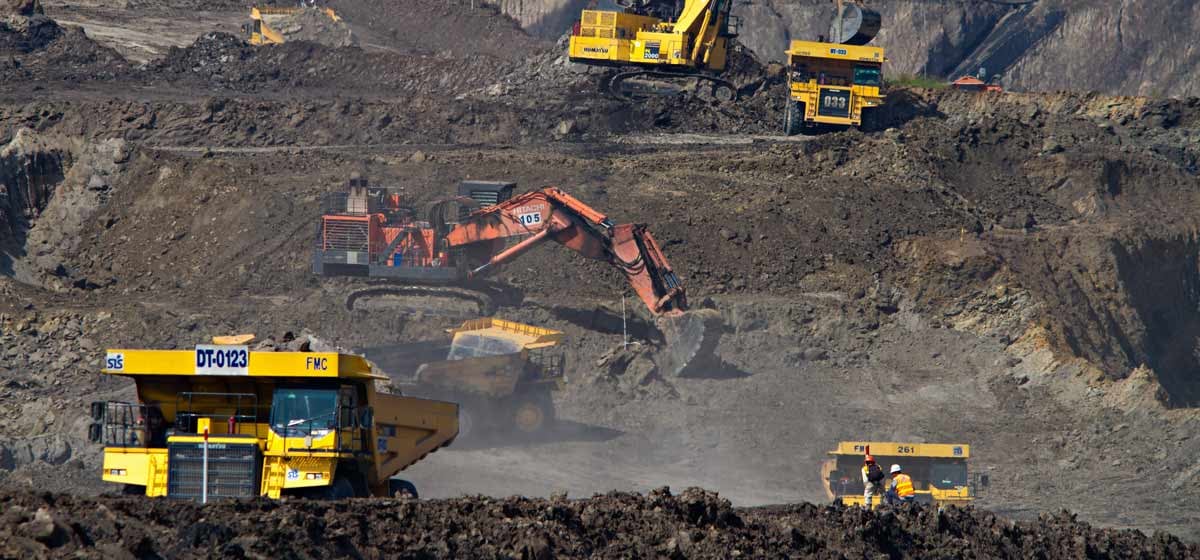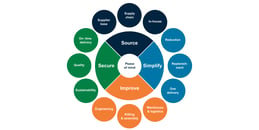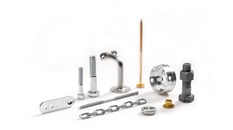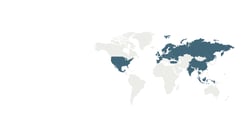- Insights
- The Solutionists Hub
- Conflict minerals: How to avoid them in your manufacturing operation
Conflict minerals: How to avoid them in your manufacturing operation

Manufacturing companies everywhere need to be aware of the problems surrounding conflict minerals. It’s a challenge to track the origins of imported raw materials, but tough international regulations mean careful due diligence is essential to make sure conflict minerals don’t find their way into your operation.
These materials are minerals and metals often sourced from regions where armed groups use the proceeds to fund violence, oppression and human rights abuses. Additionally, the mining operations used to extract these materials can cause significant damage to the environment.
Authorities around the world consider the ‘3TG’ metals to have the highest risk of coming from conflict zones – they are:
- Tin
- Tungsten
- Tantalum
- Gold
Many organisations also consider cobalt a potential conflict mineral, as well as mica – a mineral that can be used as a filler in construction materials, paint and plastics.
Depending on where they come from, these materials are not always conflict minerals, and it is possible to source them from conflict-free regions. Australia is a major nation for gold mining, for example, and Spain and Portugal are European tungsten mining hotspots.
However, these materials are commonly found in unstable areas and have contributed to funding conflicts there – which is why caution is needed when dealing with them.
International regulations, such as the EU Conflict Minerals Regulation, require companies to disclose information about their sourcing of minerals. Failure to comply can lead to penalties and, consequently, reputational damage.
Even when dealing with C-parts, it’s important to be aware of the issues around conflict minerals and proactive about avoiding them. These materials can be difficult to spot for companies that are not paying attention – metals like tin, tantalum and tungsten can be present in platings and alloys used in certain specialised parts and products, and gold is common in electronic equipment.
Detailed supply chain knowledge is required to ensure you aren’t financing conflicts in affected areas with the materials you buy.

Do we have conflict minerals in our supply chain?
An obvious first step in avoiding conflict minerals is to analyse the supply chain and see if it contains materials like tin, tantalum, tungsten, gold, cobalt and mica. Internal processes are then needed to ensure that if these materials are present, they don’t come from conflict-stricken areas.
How do we avoid conflict minerals?
Responsible companies must adopt conflict minerals policies, due diligence frameworks and management systems to ensure conflict-free products.
Are we using conflict-free smelters?
There are typically several levels of suppliers that separate a consumer product from the mine where the raw materials were extracted. Companies performing due diligence must identify the smelters and refiners in their supply chain ensure they are conflict-free. Staying updated is often a difficult and time-consuming job.
Taking measures against risky smelters
If high-risk smelters are found in the supply chain, taking actions to replace them is also a major challenge – especially when a company needs to shift focus from its core business to solving an issue in the supply chain.
How we're providing peace of mind
- Bufab's purchasing terms include conflict mineral demands – meaning the products and parts we purchase must be free of conflict minerals.
- Suppliers must notify Bufab if supplied items contain 3TGs, cobalt or mica.
- Annually, Bufab surveys 3TGs for potential conflict minerals, currently focusing on bronze, tin-plated items and electrical components.
Get in touch if you want to find out more about how working with Bufab can give you peace of mind on conflict minerals in your supply chain – and make sure to take a look at our guide to supply chain sustainability for more knowledge on sourcing your C-parts in an environmentally-friendly way.
Get new knowledge every week!
Related
-
By Sergio BrambilaSustainability targets and KPIs to implement in the purchasing department
-
By Kadi MeriväljaC-Parts Purchasing: Handling Your Sustainable Purchasing Policy
-
By Patrik Lundström TörnquistSustainability Challenges With C-Parts, and How to Manage Them
-
By Carina LööfSustainable C-Parts: What You Need to Know
-
By Niklas LindsköldCBAM: How will it affect European manufacturers?
-
By Niklas LindsköldHuman rights due diligence: Is your supply chain under control?
-
By Niklas LindsköldChemical compliance: What manufacturing companies need to know








